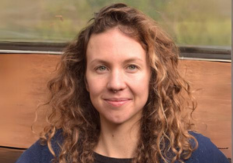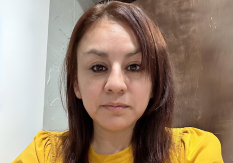|
|
|||||||||||||
How Art and a Zoo Help Students with Differences Learn Positive and Healing BehaviorsLearning in a traditional classroom setting assumes certain behavioral strengths – sitting still, focusing on a single task and time management – which can be especially difficult for children with intellectual or developmental differences. And when these differences impede a student’s ability to learn, it can create a cycle of negative reinforcement: students may begin to lose confidence or feel unable to learn, making their situations even more challenging. When working to improve educational outcomes for students with learning differences, it is essential to focus on cultivating behaviors that will equip each student to reach his or her true potential. At Devereux Advanced Behavioral Health’s CIDDS Learning Center, creative forms of learning are taking center stage when it comes to building confidence, generating positive behaviors and putting children with differences on a level playing field. About the Devereux CIDDS Center
Among CIDDS’ comprehensive programs is the CIDDS Learning Center, an approved private school in West Chester, Pa., offering a year-round educational program for residential and day students with an intellectual disability and who present behavioral challenges. Nearly all students have a diagnoses of ASD or another mental health disorder; they are referred to the school as a result of behavioral challenges that interfere with their ability to learn in a traditional school environment. “Our goal is to create learning opportunities that help students develop skills to enable them to live as respected and healthy individuals in their communities,” said CIDDS Learning Center Principal Kathy Keehn. “We provide individualized academic instruction, as well as social and emotional supports tailored to the needs of each child.” Students are grouped by age, functioning levels and behavioral needs. Class sizes range from four to eight students, and the student to staff ratio is 1:1, 2:1 or 3:1. As part of its academic program, the school offers its nearly 180 students the opportunity to participate in weekly art classes and an animal enrichment program. Devereux CIDDS Executive Director Melanie Beidler explained: “Creative forms of learning offer another mode of self-expression and a way to experience something positive which, for many of our kids, has happened so rarely in their young lives. Through our art and animal enrichment programs, we not only are bringing joy to these students, but we are helping them learn specific life skills while building self-esteem and confidence.” Art provides a judgment free zoneDevereux CIDDS Art Teacher Allison Schellenger Moran holds classes for all students on a weekly basis. Students participate in drawing, painting and other individual and group activities that incorporate art and learning. “With art, no one can tell you it is right or wrong. A class may participate in the same project, but each child takes it in a different direction,” noted Keehn. “Our students are motivated to go to art class. For many children, whether verbal or nonverbal, art helps them express their feelings, both positive and negative, in a different way. Often, our students experience a lack of success on the academic side of school. But so many of these kids have real talent, and this is a place where they can shine.” Schellenger Moran added: “I strive to help students understand that his or her art will not – and should not – be like their classmates’ art. I enforce the importance of creating authentic work, and having students complete each project themselves – adapting the project to each class or student. The results are beautiful, and the unique qualities of each student are apparent in each piece of artwork, despite not appearing to have a perfected or cookie cutter appearance.” In the past, students have taken classes at the Philadelphia Museum of Art and their artwork has been displayed at local art exhibits, as well as throughout Devereux Advanced Behavioral Health’s offices. And students’ love of art doesn’t stop after graduation. The school also presents an award – which includes a plaque and $500 prize – to one deserving student each year. The winning student, nominated by teachers and selected by parents, is recognized for how he or she overcame a specific challenge or obstacle during his or her time at the school. The best part? Several students put the award money toward taking art classes in the community. Boosting confidence and building camaraderieSchellenger Moran’s objective is “to help students gain confidence and strength through their art. When facing students who have displayed a lack of confidence in class, I tell them there is no wrong way to create art. We celebrate each student’s finished product, along with the differences and similarities in each piece so they can find pride in their creation. I have heard students advocating for each other when they become discouraged by telling one another to not give up and that every artist is different.” As a result of this camaraderie and elevated support system, she has noticed a positive change in her students’: overall excitement upon entering the art room; focus and enthusiasm during art class; and desire to present completed projects. “There are times when our art room walls are covered with finished pieces because students now have a sense of pride and drive to complete an assignment (in their own style and pace). They want to hang their art on the walls to display for their classmates and other classes,” exclaimed Schellenger Moran. Teaching empathy through animal care
All students visit the zoo on a weekly basis, and everyone has a job (e.g., cleaning cages, changing food/water). The zoo – which houses a parrot, tortoise, cats, dogs, fish, birds, a goat, two sheep, two mules and a horse – also serves as a foster home and adoption center. The zoo also offers a vocational program, whereby students who are preparing to graduate learn specific skills so they can work in, and be part of, their communities. “They learn professional skills not just related to animals, including time management, staying focused, organization and getting the job done,” said Erin Kyle, CIDDS animal care educator. “Many of our students have suffered significant trauma,” said Beidler. “Our zoo brings out the best in these kids. Over time, we see them build empathy and realize that, regardless of their own disabilities, they can help care for another living thing. And that is powerful for our kids.” Unconditional love promotes healing
“At one time, we had a child who cared for our mule, Molly. This child had been through several foster homes, and was struggling because he was about to be placed with a new foster family. But, over time, as we watched him perform the physical labor of cleaning the stall, and brushing and hugging Molly, something changed,” Kyle explained. “You might think, ‘How can caring for a mule help this child’s situation?’ Many of our kids lack the love and warmth of an adult. During their time together, the child would give Molly a hug, and she always leaned into the boy. Through the physical labor of caring for a loving animal – and receiving unconditional love from Molly – this child worked through his apprehension and got to a place of acceptance prior to moving into his new foster home.” And when it comes to the adoption center, a connection forms between the animals and children. “Many of our kids have experienced foster care, so they can relate to these animals,” said Beidler. “They pride themselves in helping prepare and find forever homes for the animals because they are looking for an adoptive family to call their own.” Creativity sparks positive behaviorsThese creative forms of learning are helping build social skills, improve communication and language abilities, provide job training and, most importantly, shape positive behaviors. “Everyone needs to be able to express themselves in a socially acceptable and appropriate way. If they aren’t able to do this, it could result in a difficult road for the future,” said Beidler. “Many kids who don’t excel in math or social studies might excel in art or learn a life-long skill at our zoo. If we don’t provide our children with the opportunity to learn in a different way – and help them find something they enjoy – we may not be helping that child live up to his or her fullest potential.” Keehn agreed. “In my observations, it is clear these classes are preferred activities. Our students’ ability to express themselves in these settings – whether they are verbal or nonverbal – is amazing. And while we’ve experienced frequent behavior issues in all other areas of our school, we have rarely had a problem in our art class or animal enrichment program. “Ultimately, creative forms of learning offer a chance for children to feel good about themselves and celebrate their differences,” Keehn added. Learn about Devereux Advanced Behavioral Health. Latest News
|
|||||||||||||
- Home
- About Us
- Advanced Philosophy of Care
- Mission, Values and Service
- Our Commitment to Safety
- Our History
- Senior Leadership Team
- Devereux Board of Trustees
- Annual Reports
- Devereux in the News
- Diversity, Equity, Inclusion and Belonging
- Recognizing Our Employees
- Celebrating Our Devereux Families
- Sharing Messages of Hope
- Who We Help
- Locations
- Supporting Devereux
- Training and Consulting
- Careers


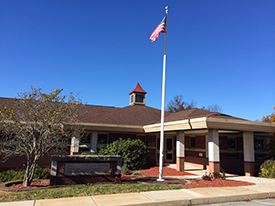 The Devereux
The Devereux 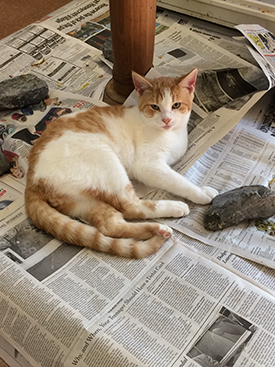 The CIDDS Nurture Center is a companionable zoo
program where students care for animals and learn functional, employment and
social skills while building self-esteem and compassion. Through this animal
enrichment program, students gain an understanding of “Service Learning,” which
uses active participation in service experiences that meet community needs
while developing empathy, leadership skills and social responsibility.
The CIDDS Nurture Center is a companionable zoo
program where students care for animals and learn functional, employment and
social skills while building self-esteem and compassion. Through this animal
enrichment program, students gain an understanding of “Service Learning,” which
uses active participation in service experiences that meet community needs
while developing empathy, leadership skills and social responsibility. 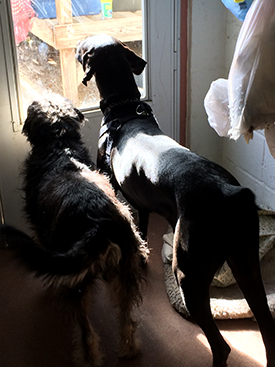 The
positive stories emerging from the animal enrichment program is truly inspirational.
The
positive stories emerging from the animal enrichment program is truly inspirational. 